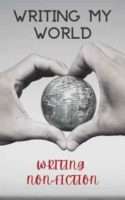In a reflective opinion piece, you are drawing on your own life or other people’s experiences to reflect and analyse something that is of interest to a broad range of readers – so it needs to be of relevance to people’s lives in some way. It can highlight a political issue, such as the barriers someone faced in getting education, or give insight into personal experiences, such as what it is like being the only child.
Reflective essays can be very personal, and it takes some courage to share your truths and vulnerabilities to a greater audience. This is what often makes reflective writing interesting – the writer’s own bravery in sharing their personal challenges and difficulties. So you need to be sure about what you want to share, and why you are sharing it – keeping in mind that honesty is one of the most powerful ingredients of an authentic piece.
This is not to say that this kind of essay is only deeply personal. As the name describes, the piece needs to be reflective – it needs to show depth of thought, and analysis. And in some cases this may then need research elsewhere to back up what you say. So if you are describing how difficult it was for you or a family member to access healthcare, for example, then it is useful to get some statistics about healthcare access, so that you relate your own experience to the broader reality of the country. If you are writing about the experiences of being a single parent, you can get stats on single parenting in SA to add weight to your piece. Or if you are writing about your place in the family, you may want to read up some psychologists’ research on the impact this has on the individual.
Although your reflective opinion piece may be calling for some kind of action – eg a call to challenge gender-based violence – this needs to emerge from the content. Try not to ‘preach’ to your readers by telling them what to do. Keep them in mind as equals that you are sharing your ideas with, not a group of people you are lecturing. Your tone can be informal, if you like, even conversational – whatever suits your voice. Just make sure you are respectful of your reader, and are not talking down to them.
It’s important to get the structure right. Some writers like to start with the personal story to hook readers in, and then go into the broader analysis. Others like to start with broad brushstrokes, and then zoom in to illustrate the point with personal detail. There is no one way of doing it, but you need to have some sort of shape to your work, some coherence so the reader keeps attentive and follows the flow.
You may need to write and rewrite your piece to get it to work. Writing about something can often unearth new thoughts and reflections, and it may be that only at the end of draft one do you really come to grips with what you are saying. Your piece needs to be coherent, and you need to be able to summarise it in a sentence or two. This refining of the angle can take a lot of work, so be open to reworking your piece as you think about what you really are wanting to say.





